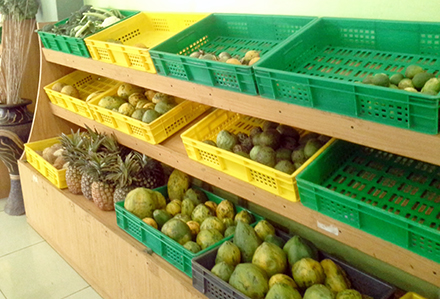Market Governance for Growth of the Domestic Organic Market, Kenya
Leah Murimi, Phd Kenya
The topic of Organic production and marketing is key to providing small holder farmers in developing countries with a sustainable option for food security and income generation. Such farmers are usually unable to compete in the conventional markets. Organic food has also attracted the attention of governments and environment conscious consumers. The latter, drive the demand for organic products mainly in high end urban areas. Among other benefits, Organic production has been established to reduce production costs, market competition and offer better prices to producers.
I carried out the study to map and characterise the domestic organic sector, to investigate governance in the value chain. I utilised both Value chain and SWOT analyses on data from organic farmers, organic markets and the national movement. Improved coordination procedures involving production, processing and distribution of organic products was observed necessary to grow the market.
I observed the domestic market to consist of greengrocers, health shops, supermarkets and upcoming box schemes and more than 35000 farmers. The main promoters included the civil society, the private sector and KOAN while the government role was still missing. Vegetables remained the main products along with spices, fruits and cereals. Transactions were mainly spot market in nature with little exchange of market or technical information. Without contracts and only few options for outlets, the retailer led the market, interpretting and communicating the needs of the market to the farmers. Organic certification, standards and quality requirements were utilised to reduce transaction costs but organic claims in the market were largely informal with little use of organic labelling. The national organic movement (KOAN) provided certification services by developing the certification standards and carrying out standards training seminars.
Some of the challenges I came across included little marketable surplus due to small land areas and limited access to productive resources, price volatility, random production and marketing, inadequate group management and weak linkages. These constraints may compound the incidence of transaction costs and inadvertently limit growth of the sector to the extent of conventionalisation. A better understanding of the sector would enable value chain actors at all levels to make better business decisions. Specifically, the results of my study may inform the required policy interventions such as capacity building and certification subsidies to aid growth of and access to organic markets.
More about the project

Leah Murimi, PhD-student.
University of Nairobi-Kenya
Enrolment date: Sept 2011
Main Supervisor: J. Nzuma
External supervisor: Kostas Karantininis/Paul Kledal
Leah Murimi submitted her thesis in 2016 – graduation is still pending.
